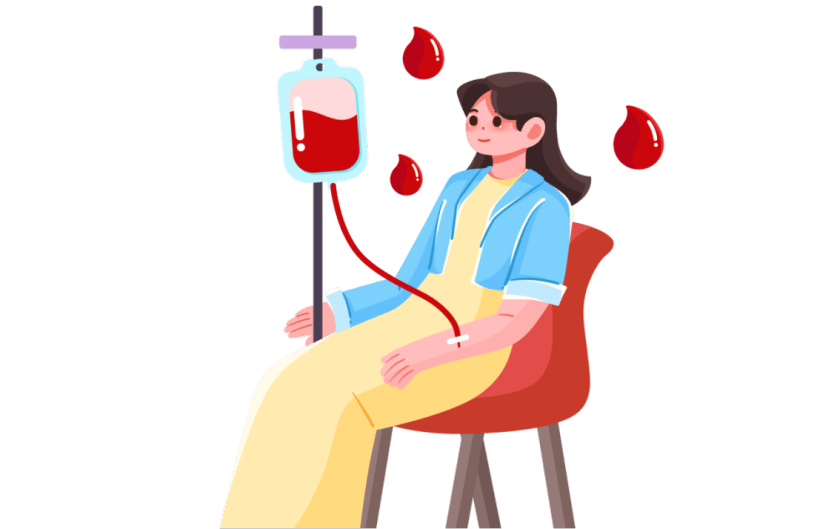In movies and TV dramas, we often see scenes where a patient urgently needs a blood transfusion in the hospital, and a family member quickly volunteers, saying, “My blood type is the same as his, quickly take mine.” After receiving the blood transfusion, the patient’s condition improves. In real life, patients may also inquire whether they can use their own blood to save a loved one. However, medical experts point out that blood transfusion between close relatives is not recommended!
When undergoing organ or tissue transplants such as bone marrow or kidneys, family members are often prioritized to find a compatible donor. However, the situation is quite the opposite when it comes to blood transfusions – it is not advisable for close relatives to donate blood to each other, as this can increase the risk of blood transfusions, leading to a severe immune transfusion reaction called Transfusion-Associated Graft-Versus-Host Disease (TA-GVHD).
Why can’t blood be transfused between close relatives? The cells, tissues, and organs in our body have their unique identification signals. The immune system uses these signals to distinguish between “self” and “foreign invaders” to protect the body. Due to the similarity of immune signals between close relatives, the patient’s blood system may mistakenly identify the new blood as its own, leading to attacks on the body’s cells, causing TA-GVHD.
TA-GVHD can result in symptoms such as fever, rash, blisters, diarrhea, bloody stools, abnormal liver function, and even bone marrow dysfunction, affecting blood production. The mortality rate of TA-GVHD is high, around 90%, with no known cure.
Can a husband donate blood to his wife? Not only is blood transfusion not recommended between close relatives, in some cases, a husband cannot donate blood to his wife. This is because the wife’s body may develop antibodies against the blood type antigens from her husband’s blood, posing a risk of hemolytic disease of the newborn if the child inherits the same blood type antigens from the father.
Therefore, for couples with a need for childbirth, blood transfusion between spouses is also not recommended.
How to ensure correct blood transfusion? Chen Aili, Deputy Researcher at the Precision Genomic Medicine Laboratory of the National Genomics Research Center of the Chinese Academy of Sciences, suggests that it is best to remove white blood cells before any blood transfusion. Developed countries generally require the removal of white blood cells, and most provinces and cities in China also remove white blood cells from blood products.
Completely removing white blood cells is best achieved through gamma irradiation of blood products. Gamma irradiation damages the DNA of white blood cells, making them unable to replicate. Additionally, it is essential to adhere to these principles: transfuse blood of the same type; adhere to the principle of the minimum dose, transfuse as little blood as necessary; choose component blood for transfusions, providing what is lacking.
END
Reference sources: Tencent Medical Encyclopedia, the Second People’s Hospital of Guangdong Province, Xiangya Second Hospital of Central South University


